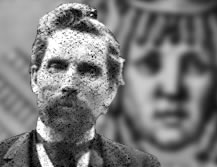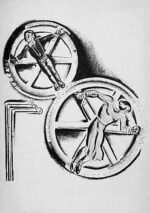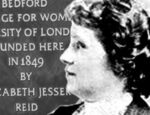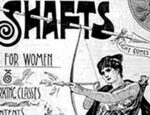Description
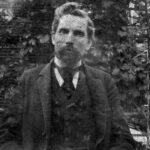 Read Cyrenus Osborne Ward, the Mid-Western autodidact who wrote The Ancient Lowly (1887), the book that introduced many people across the English-speaking world to ancient history, but from a working-class perspective.
Read Cyrenus Osborne Ward, the Mid-Western autodidact who wrote The Ancient Lowly (1887), the book that introduced many people across the English-speaking world to ancient history, but from a working-class perspective.
Raised to work on his parents’ Illinois farm, he left home in 1848 when he was seventeen. He travelled, earning his keep in manual trades and as a violinist. He read voraciously in history and geology and taught himself ancient and modern languages. He was rejected for service in the Civil War, and became involved with organised labour in the Brooklyn Navy Yard. His political writings brought him to the attention of international socialists; the archive holding Ward’s papers in New York Public Library contains his membership card in the International Workingman’s Association, dated 1870 and signed by Karl Marx.
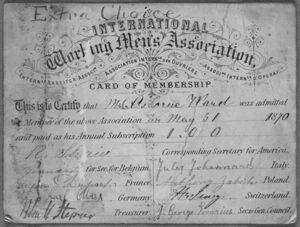 When working as librarian and translator for the US bureau of labour Ward first published his great work, under the title A History of the Ancient Working People and The Ancient Lowly to the Adoption of Christianity by Constantine; unsurprisingly, given the recentness of the abolition of slavery, vol. 1 is much concerned with ancient slavery, although it also assembles evidence for ancient trade unions. Volume 2 is perhaps the most trenchant expression in existence of the view that early Christianity was the religion of slaves and the Roman poor, but all too soon co-opted by the ruling classes to become the official religion of European imperialism.
When working as librarian and translator for the US bureau of labour Ward first published his great work, under the title A History of the Ancient Working People and The Ancient Lowly to the Adoption of Christianity by Constantine; unsurprisingly, given the recentness of the abolition of slavery, vol. 1 is much concerned with ancient slavery, although it also assembles evidence for ancient trade unions. Volume 2 is perhaps the most trenchant expression in existence of the view that early Christianity was the religion of slaves and the Roman poor, but all too soon co-opted by the ruling classes to become the official religion of European imperialism.
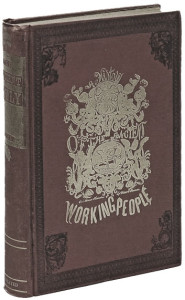 The Ancient Lowly — first published by Charles H. Kerr, America’s oldest radical bookseller — was repeatedly re-published; the 1907 reprint helped to educate a whole generation of socialists between the two Russian revolutions of 1905 and 1917. Ward’s first paragraph describes his intended readers as students of ancient history “who search for recounted deeds as well as clues to tenets of social movements among mankind. In this last, there has been an increasing interest since the beginning of the nineteenth century.”
The Ancient Lowly — first published by Charles H. Kerr, America’s oldest radical bookseller — was repeatedly re-published; the 1907 reprint helped to educate a whole generation of socialists between the two Russian revolutions of 1905 and 1917. Ward’s first paragraph describes his intended readers as students of ancient history “who search for recounted deeds as well as clues to tenets of social movements among mankind. In this last, there has been an increasing interest since the beginning of the nineteenth century.”

